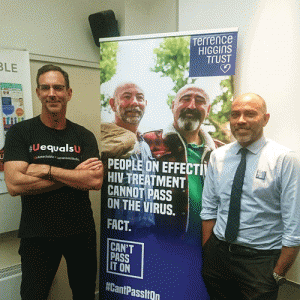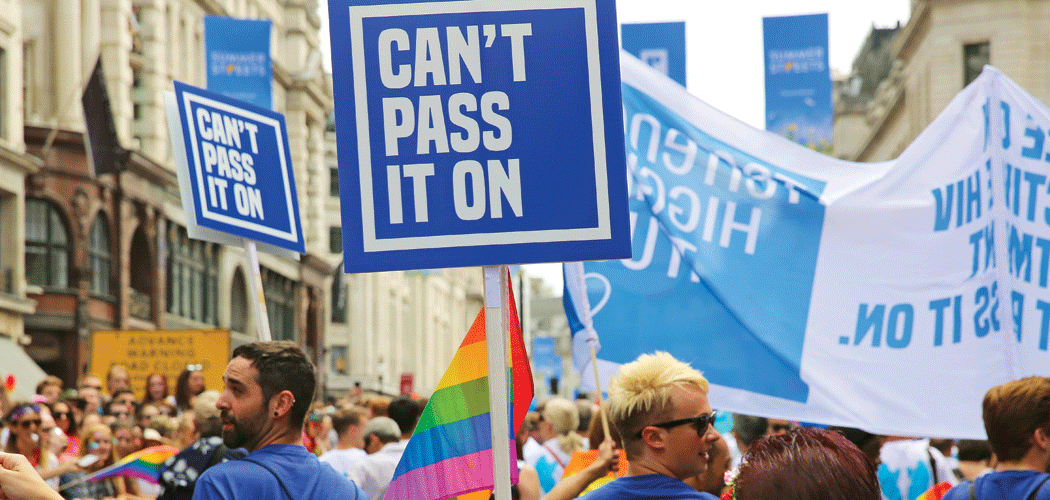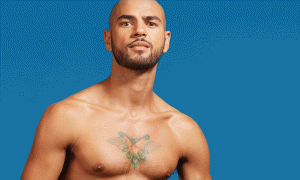Daniel Warner chats to Bruce Richman the man living with HIV who started the global movement #UequalsU to tackle stigma with science and to THT’s medical director Dr Michael Brady about the U=U campaign.

Hi Bruce, can you tell us what U=U means?
U=U means Undetectable = Untransmittable. Essentially it means if someone with HIV has an undetectable viral load then they cannot pass on the virus through sex.
What’s your story and why did you start the campaign?
I was diagnosed HIV+ in 2003 and in 2012 I learned I couldn’t pass the virus on. I hadn’t gone on treatment for seven years because I didn’t want to take a pill every day that reminded me that I was infectious. I thought I would always be infectious for the rest of my life. In 2012 my doctor informed me that I was undetectable, it was the first time I had heard this. I was being told by a medical professional that I’m not a risk and I can’t pass it on. I then discovered that loads of others didn’t know this, yet it was medically sound. Doctors gave the information out on a case to case basis but it wasn’t given to people that they thought were ‘irresponsible’ like sex workers or drug users. There was nothing online and no public health information so I decided to join together with other people to build a global coalition. I got the researchers to put a consensus statement together, made a newsletter and then looked around the world to get influencers to spread the message.
Why is it such an important message?
Bruce: It means people living with HIV don’t need to be afraid of transmitting the virus through sex. There is stigma and shame attached to that but now people that were terrified of transmitting the disease know they can’t. Once they are on treatment the closer we are to ending the epidemic.
Dr Michael Brady: At the root of stigma is misunderstanding and a lack of knowledge and a huge amount is about fear of transmission. THT surveyed 2000 members of the general public and only 9% were aware of this message. Public awareness is different to the medical process. 9% should be 100%.
How have people living with HIV responded to the message?
It’s incredible, people would stand up and cry, others have got angry. We get messages on a daily basis that this has changed their lives and it is inspiring. We also get messages from people who are rejecting it and that comes from trauma and fear and shame around passing the virus on. They reject the science. The condom was a life raft for them for many many years. This is too radical.
How have people who are HIV negative responded to the campaign? Have you met with any resistance to the message?
Bruce: Tons, non stop, but it’s getting better. In terms of the gay community those that are HIV negative are very invested in the positive community being a risk. Especially on the apps there is a lot of stigma, people being called liars and being attacked for saying they are not infectious.
Dr Michael: It is saddening that in 2017 people are still being treated differently because of their HIV status.These fears are unfounded, because we can say, with confidence, that people who are on effective treatment can’t transmit HIV – they are not infectious.There is no reason people on effective HIV treatment can’t date, fall in love, have sex, work just like anyone else. We urgently need to bring people up to date with medical evidence and science, not stigma, and that’s why campaigns like Can’t Pass It On, and #UequalsU, are so important.
How important is the U=U message to people who have recently been diagnosed with HIV?
For newly diagnosed people U=U gives them a sense of hope, a sense of possibility of love. It changes everything. This is a way to advocate for treatment to save our lives, to prevent new infections and to put an end to this epidemic. It’s aspirational and it changes lives.
What about people who decide not to test and how do you feel about PrEP?
HIV is not as scary, you don’t have to be afraid to go and get tested. Perceptions will be changed. If we could encourage people to go on treatment they could have all the sex that they want. PrEP is very important. Test and treat is going to be more impactful but we still need PrEP.
What’s next for U=U and what is the ultimate goal?
Bruce: This message is a powerful reason, in the US and across the world, for equal access to HIV treatment to save lives and stop transmissions. The definition of living with HIV will be seen as scary and we need to erode the stigma. We hope to make people want to go on to treatment and get us closer to ending this epidemic.
Finally Dr Michael, how important is it for THT to get involved with campaigns and organisations such as U=U?
As the UK’s leading HIV and sexual health charity, we are here to amplify and share messages that tackle HIV stigma and help stop HIV transmission, and that’s what the U=U campaign is doing. Bruce has galvanised a coalition of hundreds of expert organisations around the world, including UNAIDS, to commit to getting this message out – and we’re proud to be a part of that.
Find out more about the U=U campaign at www.preventionaccess.org and the Terrence Higgins Trust’s Can’t Pass It On campaign at www.tht.org.uk/cantpassiton














